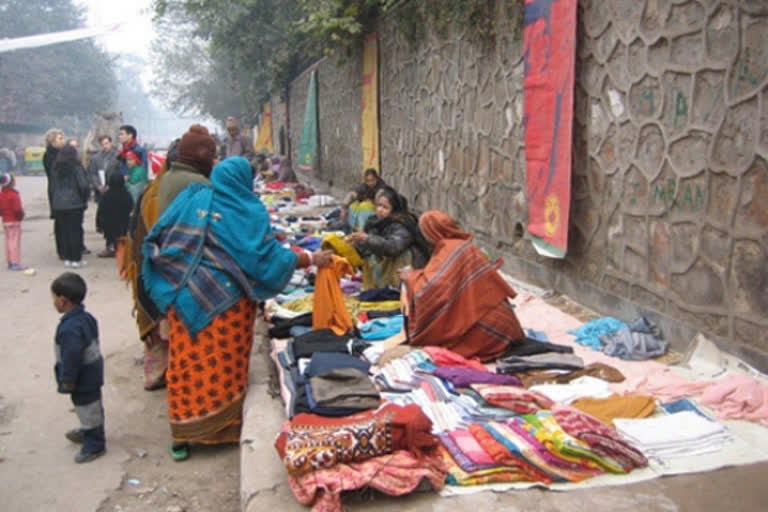New Delhi: Thirty-four senior bureaucrats have been made nodal officers to assist states and supervise the implementation of Prime Minister Street Vendor's Atma Nirbhar Nidhi scheme in the country, officials said on Thursday.
The scheme, to be implemented from July 1, is aimed at providing affordable loans to street vendors to resume their livelihoods that had been hit due to lockdown.
Under the scheme, vendors can avail a working capital of up to Rs 10,000, repayable in monthly instalments in one year. On timely/early repayment of the loan, an interest subsidy @7% per annum will be credited to the bank accounts of beneficiaries through Direct Benefit Transfer on a six-month basis.
"The nodal officers will be responsible for supervising the implementation of the scheme and also assist states in resolving issues that may arise," a Personnel Ministry order said.
The Ministry of Housing and Urban Affairs will provide the charter of duties of the nodal officers, contact details of stakeholders in the states/union territories/cities and all the necessary support, it said.
Also read: Opening space sector will enable India to play important role in global space economy: ISRO Chief
All nodal officers, except Niranjan Kumar Singh of Indian Forest Service, belong to the Indian Administrative Service. They all are of the joint-secretary level.
Singh has been made the nodal officer for Gujarat, M C Jauhari for the northeastern region states, Neerja Sekhar for Haryana, Hukum Singh Meena for Bihar, Rajat Kumar Mishra and Tanmay Kumar for Rajasthan and Rajesh Kumar Sinha for Kerala.
Kamran Rizvi, Leena Johri, Amit Kumar Ghosh and Partha Sarthi Sensharma have been appointed nodal officers for Uttar Pradesh, the Personnel Ministry order said.
Amit Agrawal will be nodal officer for Chhattisgarh, Rakesh Kumar Verma and Alaknanda Dayal for Punjab and G Jayalakshmi for Telangana, it said.
Over 50 lakh people, including vendors and hawkers, in different areas/contexts, are likely to benefit from this scheme. The goods supplied by them range from vegetables, fruits, ready-to-eat street foods, tea, pakodas, breads, eggs, textiles, apparel, footwear, artisan products, books/stationaries etc.
The services include barbershops, cobblers, pan shops, laundry services etc.
PTI report.



